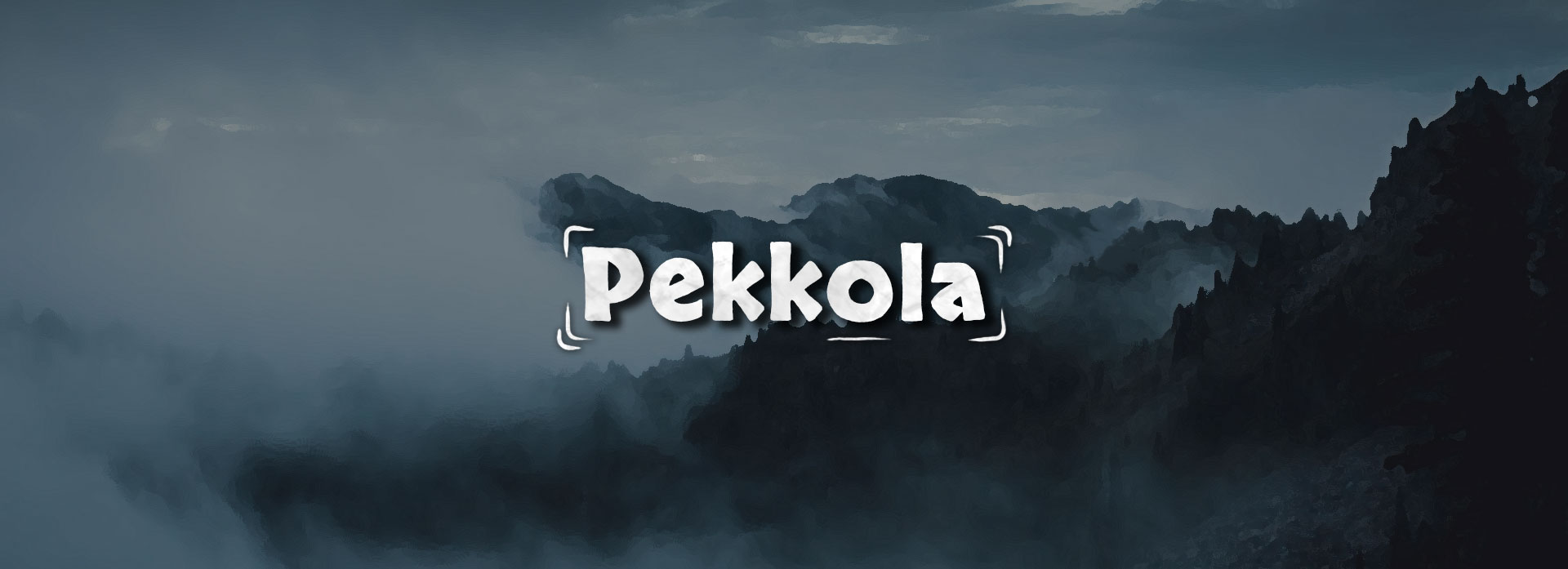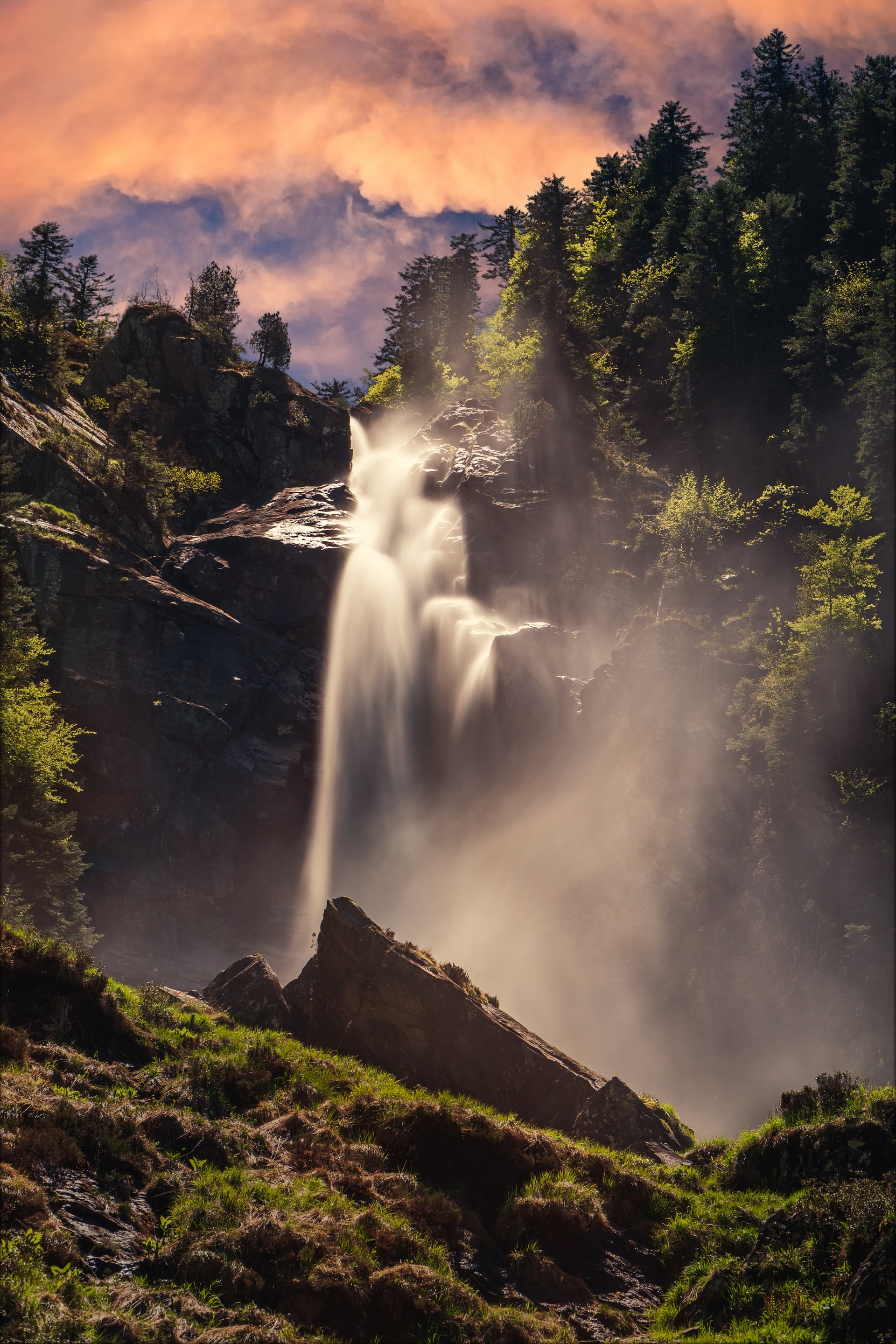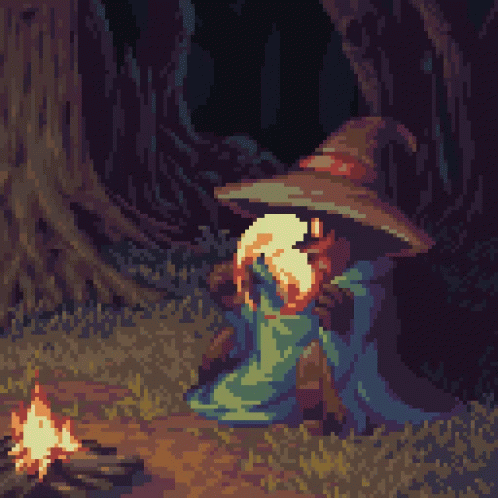Tathland
Homeland of the Tathians
Welcome to old Tathland, laddie. We got plenty of exciting places to visit. Now I'd personally recommend the nearby tavern, but for some reason, you foreign type seem attracted to our highlands. Just remember to steer clear of the glowy caves.Tathland is the green and mountainous region in Pekkola that is considered the homeland of the Tathian people. Well known for its lush forests and a warmer climate, Tathland is brimming with a diverse variety of life. Unlike the rest of the regions in Pekkola, Tathland lacks a land connection to any of the other northern areas. This has left some to wonder if the location should even be considered a part of the north.
Geography
While over across the Pekkolanian sea the forests consist mostly of conifers and life at times may seem sparse, Tathland is blessed with a diverse array of lifeforms and a temperate oceanic climate. The Tathian highlands contain many scenic views of broadleafs that transition into pines as they climb the slopes.Cave Systems
Hidden beneath the highlands and the vast forest that covers it lie the caves of Ardogh. Those who have dared to delve into the dark passages have reported stumbling across a grand cave system with massive chambers that were large enough to house a forest of mushrooms. In recent years it was discovered that the supposed forest of mushrooms was, in fact, a forest of giant, tree-sized, glowing fungi. No one has ventured beyond the bright forest as of yet, but countless tales surrounding the matter have emerged.Fertile Fields
The lowlands are known for its fertile soil and the bountiful harvests that come from there. Many have on occasion referred to the land as the breadbasket of Pekkola as often the other regions rely on Tathian grain at times of famine. Some say that the soil of the region was what had gained the Rahyamin Empire's attention. Desperation for more food could have been the catalyst for the invasion of Tathland and an explanation as to why the Rahya sought to develop the land.Political Landscape
The last stronghold of the reactionaries has fallen. With the winds of rebirth wrecking havoc across our native lands, the future of Tathland remains uncertain. Will we find the perfect system, or will the road to paradise be paved with bones too numerous to count?In recent years, the geopolitical situation has been ever-shifting and filled with revolutionary zeal. The religious beliefs of the natives have led them to look for a better system of governance. Despite believing that their goals are just and help everyone, many have felt left behind and whenever they’ve tried to speak up about their grievances, they’ve been denounced as reactionaries and repressed.
Last Bastion of the Unheard
Fachlwydd, a country in the northern parts of Tathland, was a state where such people had become the vast majority. They overthrew their old government, putting a stop to the rapid reforms, but such an act evoked the ire of their neighbouring countries. The new administration announced that they'd be the protectors of the unheard and began searching for allies and like-minded factions.
Before alliances could be secured, the Free City of Gelach, a powerful merchant republic on their northeastern border, presented the upstart government with an ultimatum. Given the choice between submission or a conflict that they were unprepared to face, the government stayed true to its commitments and prepared for war.
Unbeknownst to them, however, religious zealots poised to continue with the reforms had remained in key positions within the administration and military. By holding on to their positions, they were able to lend aid to the enemy, leading to the swift downfall of the short-lived reactionary state.
The Free City
With the reactionaries on our western border dealt with, our attention must turn to the east. A new threat has emerged that threatens our righteous order. Our bickering feuds must be put aside to counter the enemy as a united front.
After the quick war against Fachlwydd, Gelach appointed those revolutionary agents who had assisted them to positions of power, establishing the country as a protectorate under the free city. In addition to turning them into a puppet state, Gelach annexed land, redrawing the border at along the Sgàir hills so that they’d have access to the copper mines in the region.
While the people of the free city celebrated their victory over the reactionaries, an additional threat had crept closer from the east, their foreign banners closing in on Gelach's borders.
Foreign Threat
The Kingdom of Liwal, a multicultural realm where Tathians and other strange cultures from the east collaborate as one, threatens the great Tathian dream of becoming the creators of a new powerful civilisation that could spread the bright flames of enlightenment just as the Rahyamin Empire had done before them. During the Gelach-Fachlwydd war, the armies of Liwal crushed the Táirlui Federation, a nation that had held the northeastern parts of Tathland since the fall of the Rahyamin Empire. With their lands conquered, King Konágh of Liwal’s next target was clear, and the free city grew more aware of the situation as the victory celebrations winded down.Principalities of Sabba and Roich
Occupying the southern reaches of Tathland, the Principality of Sabba maintains their iron grip over a peculiar realm. Theirs is a land ruled both by the native Tathians, but also by the descendants of the once powerful Rahyamin Empire. While many of the remnant fled the northern lands in fear of persecution, their situation among in Tathland wasn’t as dire.Our neighbours have been appeased, yet the security of our two peoples under this great banner remains under threat. Set your sights to the sea, my friends. We have work to do.
Distraught by the realisation that an actual country emerged from the ashes of the old empire that was still led by Rahya loyalists, several Ceired lords on the shores of Rieweck and Lithmark began launching operations against the principality’s trade routes.
Threatened by the risk of an all out embargo, the Principality of Sabba searches for allies in preparation to clear the seas of Ceired vessels.
While every other state in Tathland has had a long and complicated tale of how they formed, Roich has become an oddity. Their young state was founded years ago when the governing council of the Blessed Republic of Neddelwei decided to break off a part of their own country to experiment with new methods of governance. The plan was to let this new creation to experiment with a form of plutocratic democracy while also remaining tied to the blessed republic through a military treaty that required them to collaborate in every war. This has for the most part meant that Roich's problems are the same as Neddelwei's, but there are some now who wish to take the artificial country down its own path, one where they'd be completely free to determine their own destiny. While the independence movement is still new and its supporters too insignificant to make any meaningful moves, their numbers grow with each passing day and whispers of freedom have reached the halls of government. While the wealthy landlords and merchants who run the state profess their undying loyalty to Neddelwei for now, their minds are easily swayed, especially if their status or wealth are threatened. For now, though, supporting any sort of independence movement would be detrimental to their power, but that might not last forever.
The Shambling Republic
When looking at a map, one might be led to believe that out of all the various nations in the region, the Blessed Republic of Neddelwei must surely be the most powerful and influential. Roughly half of Tathland falls within the country and the Principality of Roich is by many considered an autonomous province. However, appearances are often deceiving. Despite holding much in terms of land and resources, the government of this vast republic is inefficient and often in shambles. Their leaders change so often that keeping track has become a chore and whenever things get too far out of hand, the governments of the republics administrative divisions have been forced to march on the capital to restore order, but such coups have often simply contributed to more chaos.
Type
Region
Location under
Included Organizations
Inhabiting Species








Haha, in Britain the north/south argument is very strong, so I can relate to the confusion over the identity of Tathland. Also... glowy mushroom forest excites me. :D